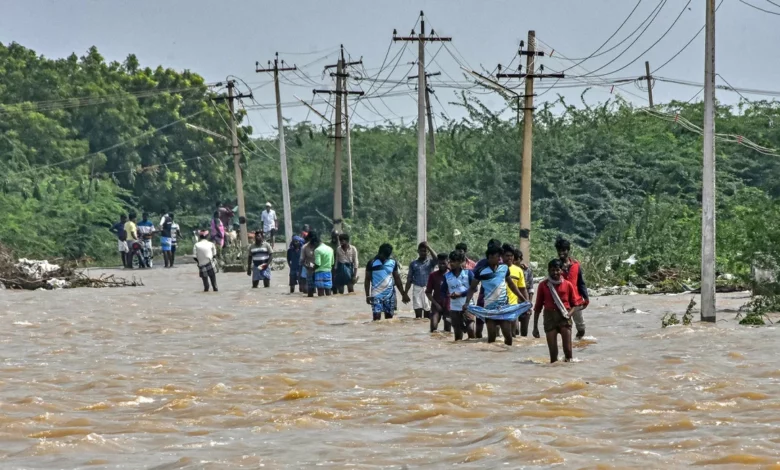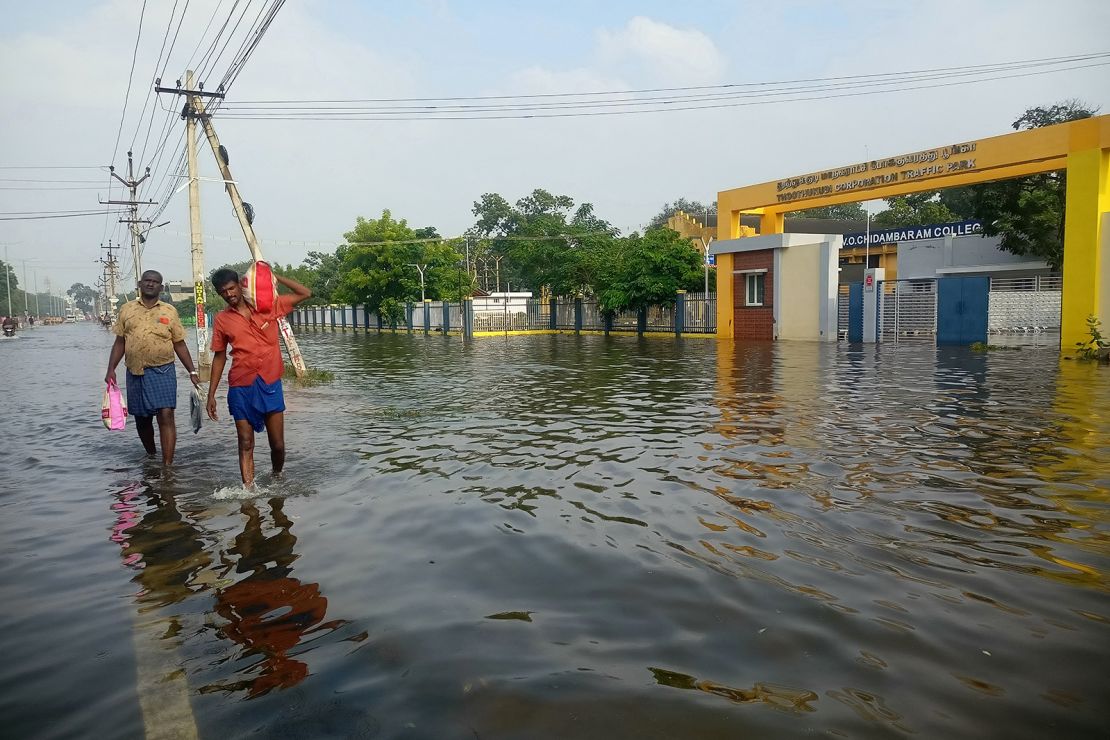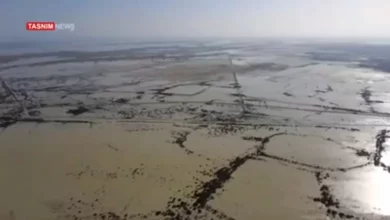
India’s southern state of Tamil Nadu is braced for more downpours after heavy monsoon rains brought deadly flash floods and submerged entire neighborhoods earlier this week.
The Indian Meteorological Department (MET) forecast further heavy rain after more than 400 millimeters (15.7 inches) fell in parts of the state from Sunday into Monday. That’s nearly half of what Tamil Nadu typically receives in a year, according to a CNN Weather analysis of MET data.
At least 10 people died in the flooding, Tamil Nadu Chief Secretary Shiv Das Meena told reporters on Tuesday.
The downpour also occurred as the state of 72 million people reels from the aftermath of Cyclone Michaung, which battered Tamil Nadu earlier this month, killing at least 12 people.

Video and photo broadcast on local television this week showed people wading waist-deep in the muddy water. Indian Air Force helicopters have been dropping food and essential items to people stranded on rooftops, according to video published by the country’s defense ministry.
The deluge had weakened since December 18 with conditions improving for rescue crews.
India’s northeast monsoon usually runs from October to December, bringing heavy rain, particularly to the south. Parts of southern India have in recent years experienced spells of extremely heavy rainfall, destroying houses, flooding roads, and claiming dozens of lives.
In 2021, at least 35 people were killed after heavy rains battered the region. A few months earlier, 16 people were killed in another spell of downpours in Tamil Nadu.
While floods occur regularly during India’s monsoon seasons, experts say climate change is increasing their frequency and severity.
The world’s most populous nation is one of the countries worst affected by the climate crisis, according to the Intergovernmental Panel on Climate Change – potentially affecting 1.4 billion people nationwide.



